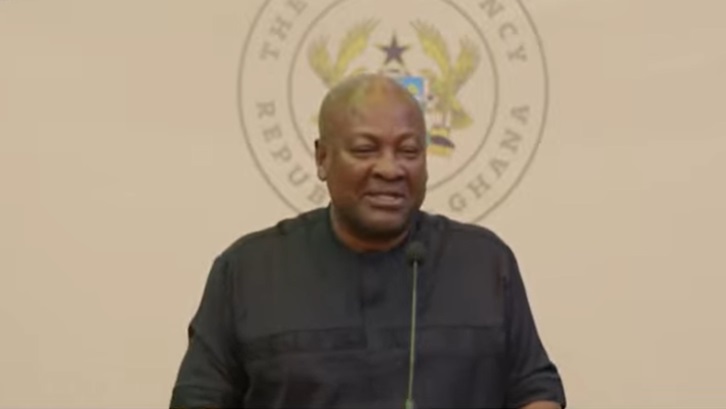- Over 120,000 first-year students refunded under “No Fees Stress” policy.
- Linked to “Student Loan Plus” for flexible financing in later years.
- GH¢564.6 million allocated for textbooks — highest in nearly a decade.
- Free SHS strengthened with GH¢3.5 billion and decentralized feeding plans.
- Free tertiary education for persons with disabilities has commenced.
- Ghana National Research Fund launched with GH¢50 million and annual PhD scholarships.
President John Dramani Mahama has announced sweeping reforms in Ghana’s education sector, revealing that over 120,000 first-year students in public tertiary institutions have received full refunds of their admission fees under the newly launched “No Fees Stress” policy.
Speaking at the Jubilee House on September 10, the President said the initiative marks a decisive shift in how Ghana supports brilliant but financially constrained students. “It signalled a break from the painful era when dreams were cut short simply because fees couldn’t be paid,” he stated.
The refund scheme is part of a broader education reform package that includes the rollout of the “Student Loan Plus” programme, designed to offer flexible financing options for continuing students.
In basic education, Mahama announced a GH¢564.6 million allocation for textbooks — the highest in nearly a decade — aimed at strengthening foundational learning across the country.
On secondary education, he confirmed that Free SHS has been fortified with a record GH¢3.5 billion budget. He also revealed plans to decentralize feeding arrangements, allowing schools to provide better quality meals tailored to local needs.
The President emphasized inclusivity, confirming that free tertiary education for persons with disabilities has officially begun. “Education must be a right and not a privilege for every Ghanaian, regardless of physical ability,” he said.
To boost research and innovation, Mahama unveiled the Ghana National Research Fund, seeded with GH¢50 million. Under the scheme, five PhD scholarships will be awarded annually at every public university, aimed at reducing dependence on foreign grants and empowering Ghanaian scholars.

